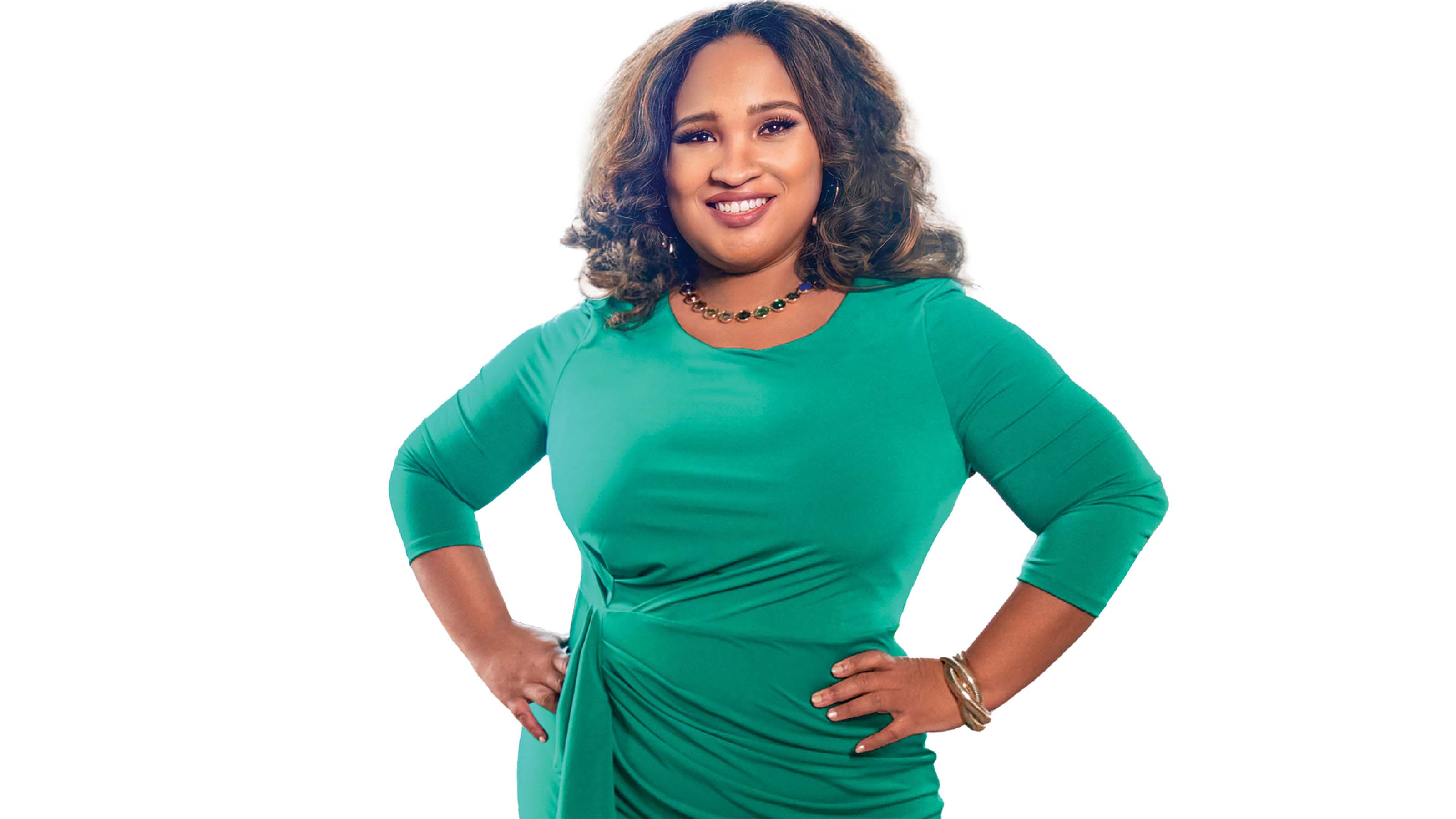Don’t Leave Your Benefits Behind
When changing jobs, lock down health insurance and don’t forget your 401(k).

Profit and prosper with the best of Kiplinger's advice on investing, taxes, retirement, personal finance and much more. Delivered daily. Enter your email in the box and click Sign Me Up.
You are now subscribed
Your newsletter sign-up was successful
Want to add more newsletters?

Delivered daily
Kiplinger Today
Profit and prosper with the best of Kiplinger's advice on investing, taxes, retirement, personal finance and much more delivered daily. Smart money moves start here.

Sent five days a week
Kiplinger A Step Ahead
Get practical help to make better financial decisions in your everyday life, from spending to savings on top deals.

Delivered daily
Kiplinger Closing Bell
Get today's biggest financial and investing headlines delivered to your inbox every day the U.S. stock market is open.

Sent twice a week
Kiplinger Adviser Intel
Financial pros across the country share best practices and fresh tactics to preserve and grow your wealth.

Delivered weekly
Kiplinger Tax Tips
Trim your federal and state tax bills with practical tax-planning and tax-cutting strategies.

Sent twice a week
Kiplinger Retirement Tips
Your twice-a-week guide to planning and enjoying a financially secure and richly rewarding retirement

Sent bimonthly.
Kiplinger Adviser Angle
Insights for advisers, wealth managers and other financial professionals.

Sent twice a week
Kiplinger Investing Weekly
Your twice-a-week roundup of promising stocks, funds, companies and industries you should consider, ones you should avoid, and why.

Sent weekly for six weeks
Kiplinger Invest for Retirement
Your step-by-step six-part series on how to invest for retirement, from devising a successful strategy to exactly which investments to choose.
After almost eight years at Kiplinger, where I started my career as an intern, I’m moving on to a new job. I had to tie up a lot of loose ends as I eyed the exit, and one of the most important was figuring out what to do with workplace benefits, including health insurance and my retirement savings account. It’s a task that most millennials will need to tackle more than once as we make moves to advance our careers.
For most job-switchers, health insurance is the most pressing concern. Many employers’ health plans let you continue coverage until the end of the month in which you resign. You also need to know when you’ll be eligible for your new employer’s health care coverage. Some companies will let you start coverage right away, while others have a waiting period of 30 to 90 days.
I won’t have a gap in coverage. But if you do, you have several options. As long as your former employer has 20 or more employees, you’ll generally be able to keep your insurance for up to 18 months through the federal law known as COBRA. Prepare for sticker shock. You’ll have to pay your share of the premium and the part your employer used to pay, plus administrative fees up to 2%. You’ll have up to 60 days after you lose your job-based coverage to decide whether to take COBRA and another 45 days to pay the first premium. Because coverage is retroactive to the day you lost coverage, some people who are between jobs wait to see if they need medical care during that time before enrolling.
From just $107.88 $24.99 for Kiplinger Personal Finance
Become a smarter, better informed investor. Subscribe from just $107.88 $24.99, plus get up to 4 Special Issues

Sign up for Kiplinger’s Free Newsletters
Profit and prosper with the best of expert advice on investing, taxes, retirement, personal finance and more - straight to your e-mail.
Profit and prosper with the best of expert advice - straight to your e-mail.
You may find more-affordable coverage elsewhere. Job seekers who are married to a spouse with workplace coverage options may enroll in the spouse’s plan. Or you can purchase insurance from your state’s insurance exchange, available at HealthCare.gov. If your modified adjusted gross income is less than $49,960 ($67,640 for married couples), you can apply for a federal subsidy. Otherwise, you may want to shop for a short-term plan on a site such as eHealthInsurance.com. Premiums for short-term plans usually cost a lot less than plans on the exchanges, but they typically don’t cover preexisting conditions and can reject you because of your health.
Make a plan for your 401(k). If your old boss’s 401(k) or other employer-sponsored retirement plan has great investments, you may decide to leave your money in the account. But you won’t be able to make additional contributions and may be charged an account-maintenance fee. Another drawback: If you change jobs several times and leave 401(k) plans behind, it becomes more cumbersome to manage your investments. If your new employer’s plan accepts rollovers and you like its roster of investments, you could transfer the funds to the new company’s plan once you’re eligible. Or you may roll your old 401(k) into a new or existing IRA, which could offer lower fees and broader investing options than employer-sponsored plans.
Once you decide where you want the money to go, contact your old 401(k) provider and request a direct rollover into the new account. Avoid withdrawing the balance or having a check made out to you. If you do, 20% will be withheld for income tax, and unless you put the entire distribution, including the withheld amount, into a new retirement account within 60 days, you’ll owe income tax on that money, plus a 10% early-withdrawal penalty because you’re younger than age 55.
I need to pay roughly $15 in fees to leave my 401(k) where it is until the final contributions are made, and after that I will move the funds to my new employer’s plan. But first, I’m enjoying a few days off before starting my next adventure.
Profit and prosper with the best of Kiplinger's advice on investing, taxes, retirement, personal finance and much more. Delivered daily. Enter your email in the box and click Sign Me Up.

-
 Dow Adds 1,206 Points to Top 50,000: Stock Market Today
Dow Adds 1,206 Points to Top 50,000: Stock Market TodayThe S&P 500 and Nasdaq also had strong finishes to a volatile week, with beaten-down tech stocks outperforming.
-
 Ask the Tax Editor: Federal Income Tax Deductions
Ask the Tax Editor: Federal Income Tax DeductionsAsk the Editor In this week's Ask the Editor Q&A, Joy Taylor answers questions on federal income tax deductions
-
 States With No-Fault Car Insurance Laws (and How No-Fault Car Insurance Works)
States With No-Fault Car Insurance Laws (and How No-Fault Car Insurance Works)A breakdown of the confusing rules around no-fault car insurance in every state where it exists.
-
 About 40% of Heirs Say They Can’t Afford an Inherited Home
About 40% of Heirs Say They Can’t Afford an Inherited HomeEstate Planning The ‘Great Wealth Transfer’ may not help with high property taxes, soaring homeownership costs, and liquidity issues in 2025.
-
 When Renting Is Smarter Than Buying
When Renting Is Smarter Than Buyingreal estate There are some situations when renting is smarter than buying. You're not necessarily throwing your money away when you rent.
-
 How Do You Pay off Credit Card Debt?
How Do You Pay off Credit Card Debt?Making Your Money Last Pay off credit card debt with these tried-and-true strategies.
-
 Bear Market Strategy for Millennial Investors
Bear Market Strategy for Millennial InvestorsA focused, goal-oriented approach to investing can help millennials navigate a bear market.
-
 Rent vs. Buy: Sometimes Renting is Better
Rent vs. Buy: Sometimes Renting is BetterPersonal finance experts have long held that homeownership is a key step to building lasting wealth. How does that hold up in a pricey real estate market?
-
 Your Guide to Open Enrollment 2023
Your Guide to Open Enrollment 2023Employee Benefits Health care costs continue to climb, but subsidies will make some plans more affordable.
-
 How Our Family Fights Inflation
How Our Family Fights InflationBudgeting Millennials typically spend more than other generations on certain expenses that have been increasing most rapidly. Here are some tips to cut your losses.
-
 Make the Most of the New Workplace
Make the Most of the New WorkplaceEmployee Benefits In the wake of the pandemic, employers are willing to be more flexible and inclusive.